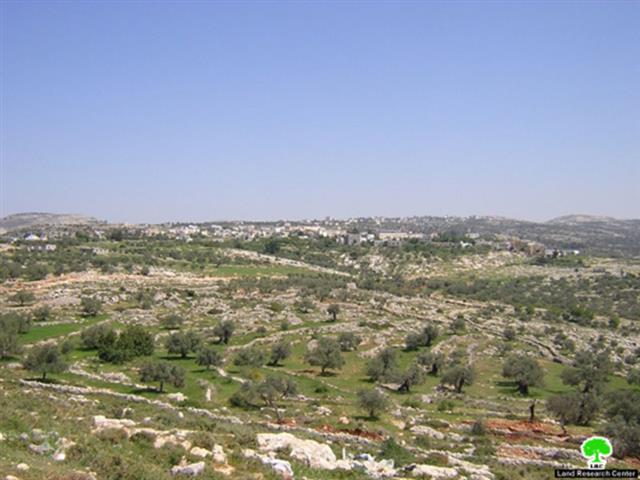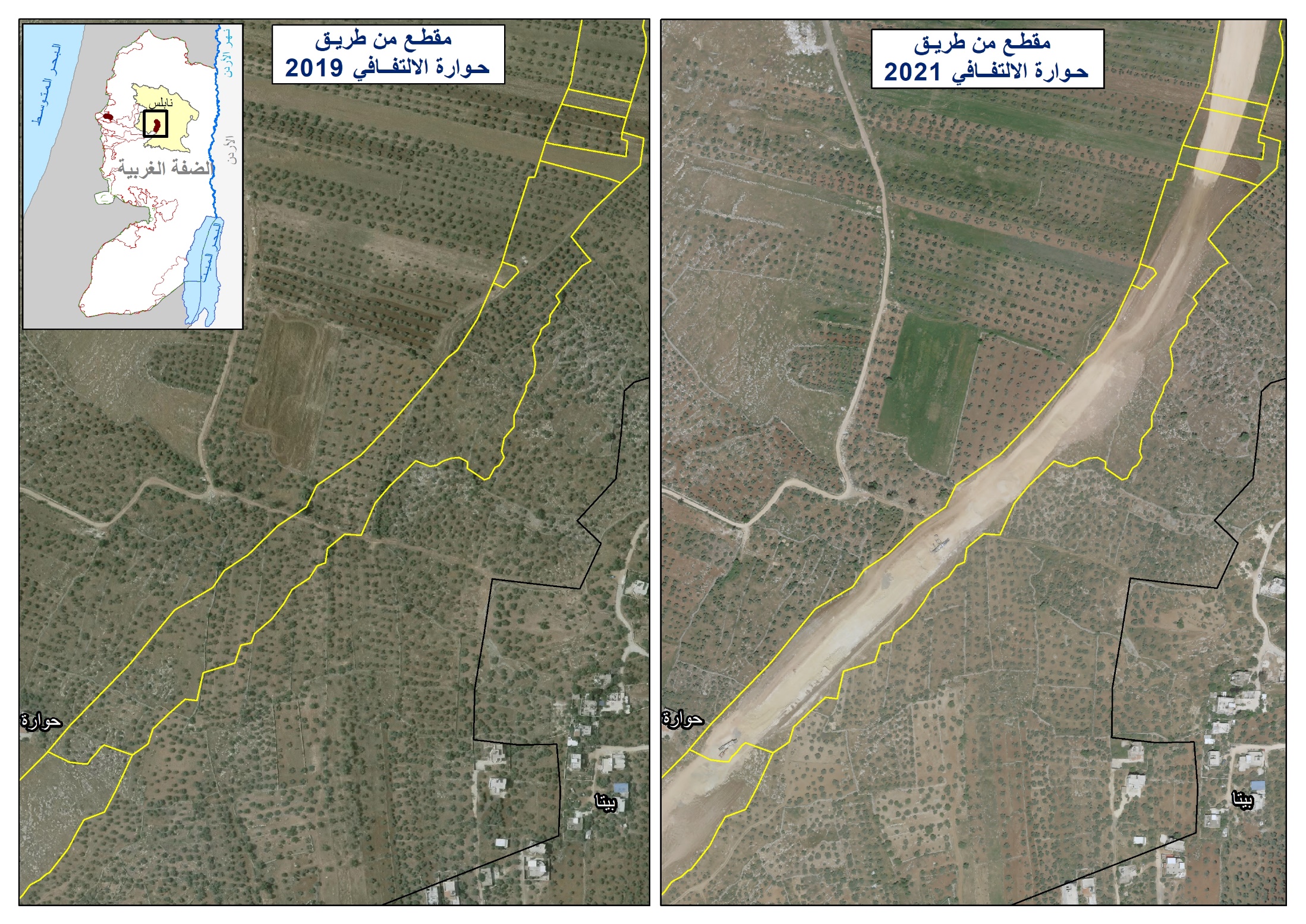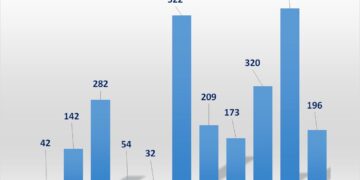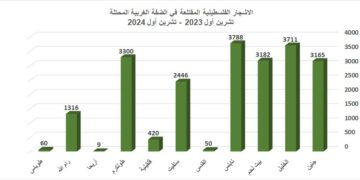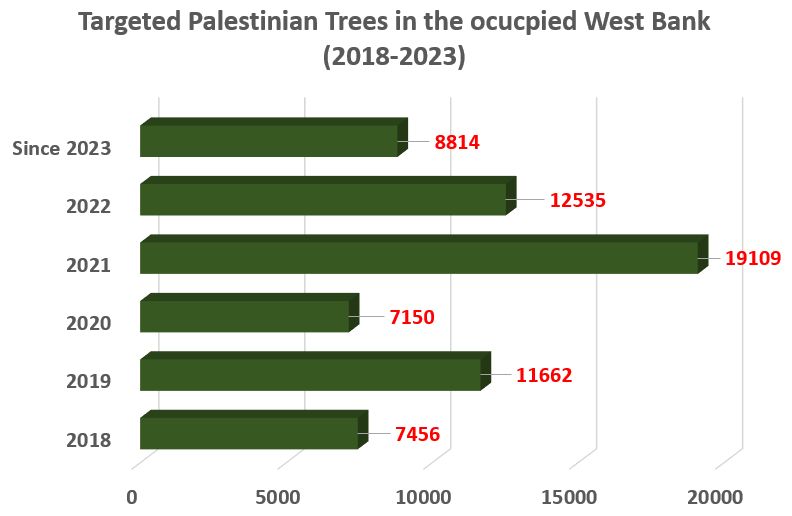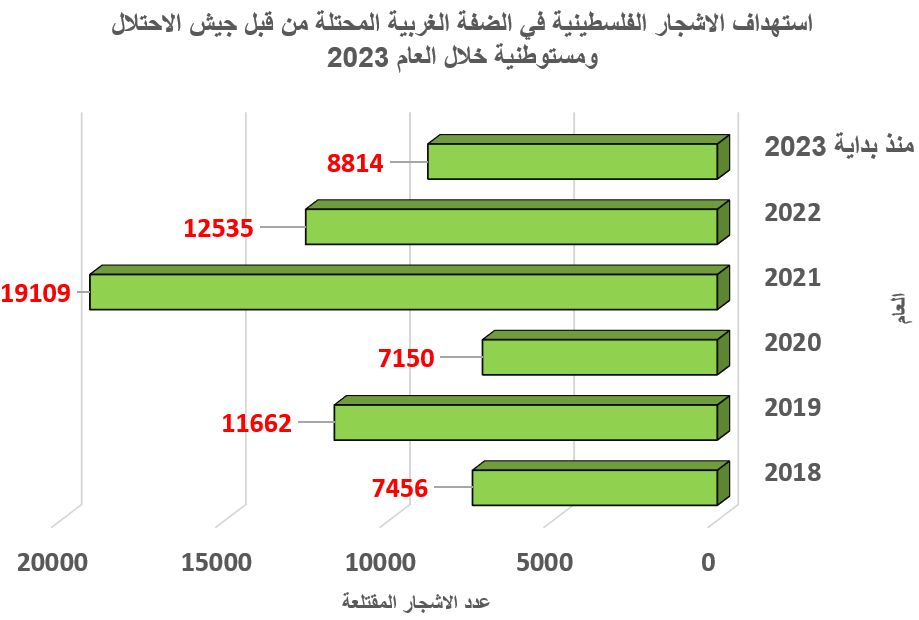- Violation: setting tens of dunums alight.
- Location: south Bil'in.
- Date: June 22, 2011.
- Perpetrators: the Israeli Occupation Army.
- Victims: farmers of Bil'in.
Details:
Bil'in is considered one of the symbols of rejection of the Israeli discrimination and oppression and resistance of its colonial plans in the West Bank. The village lost more than 2000 dunums due to the construction of the segregation wall while the locals are deprived from their basic rights.
Since the beginning of the construction of the 3-km-long-section of the segregation wall, in the western part of the village, and the village has been struggling for its rights. The Israelis prevent the Palestinians from reaching the isolated lands. On June 16, 2011, a group of colonists burned more than 75 dunums of olive fields; to some extent burning around 1000 olive trees.
In addition, flames erupted in 120 dunums of waste lands located in the southern part of the village, an area known as 'Al Mizrab'.
The dryness of the bushes and the wind helped the flames to spread quickly. The Israeli Army obstructed the fire trucks and prevented them from gaining access to areas behind the wall; claiming that they need to issue special permits from the District Coordination Office. The colonists' attacks occurred concurrently with adjustments to the segregation wall that was approved by the Israeli Supreme Court.
The wall isolated and destroyed more than 2300 dunums of agricultural fields in 2006. According to the Court order, 1500 dunums will be returned to the village; a decision that enraged the colonists. Israeli soldiers start fires all around the area by randomly throwing sound grenades and flash bangs.
Bil'in:
Bil'in is located 12 km west of Ramallah; it is edged by Modin Illit colony. Its total area is 4000 dunums; the wall destroyed and isolated 2300 dunums of its land in 2006. The lands used to be planted with wheat and cereals and were considered a major source of income for the villagers. It is inhabited by 1900people.
Prepared by:
The Land Research Center
LRC


